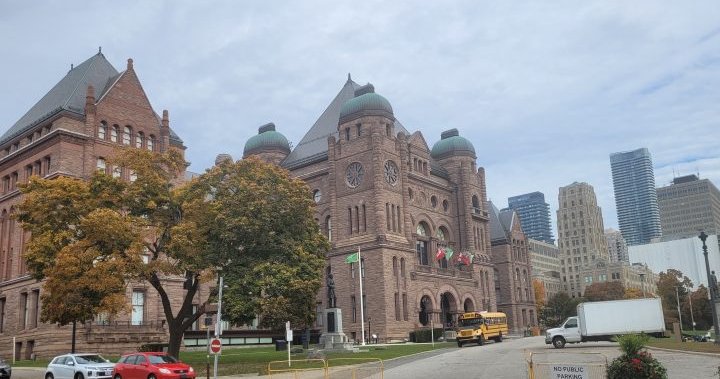A private, Reformed Christian university in southern Ontario that’s been criticized for its stand on homosexual relationships has won a court challenge of the federal government’s refusal to provide the school a summer jobs grant.
Last August, Redeemer University in Hamilton applied for a judicial review over the government’s 2019 decision to reject its attempt to enter the Canada Summer Jobs program. In rejecting the university’s grant application, Ottawa said the university wasn’t able to prove it provides a workplace free of discrimination or harassment.
On Tuesday, Justice Richard Mosley ruled the Ministry of Labour denied the school procedural fairness and ordered that Redeemer have its legal fees paid.
The university has faced criticism for its policy that says students will be disciplined for any sexual behaviour that occurs outside a heterosexual marriage, based on what Redeemer calls “biblical intentions.
The policy distressed some former students, and the school says it has tried to make changes since then.
Human rights lawyers also argued the policy could violate the Canadian Human Rights Act, and have said it’s problematic to give the school taxpayer dollars.
The Canada Summer Jobs program provides wage subsidies to employers to create summer jobs for students aged 15 to 30 where they gain skills and job experience.
Court documents show Redeemer earned money from the grant between 2006 and 2017, which the school says it used to hire summer students in various departments.
Why Redeemer was denied funding
In Tuesday’s ruling, Mosley wrote Redeemer applied in 2018, but was denied because it refused to agree with a newly added and mandatory section in the application.
The school’s lawyer, Albertos Polizogopoulos, said in an interview in August 2020 that the section was about reproductive rights and ran counter to the university’s views.
Redeemer was one of several parties affected by the controversial section. That case has yet to be heard by Federal Court, Redeemer says.
“People holding contrarian views are being punished by the government because they’re being excluded from the Canada Summer Jobs program on the sole basis they hold a position this government disagrees with,” Polizogopoulos, who is also a partner at the Acacia Group, said in an interview last August.
In 2019, the government changed the section with a statement about how the funding would not be used to “undermine or restrict the exercise of rights legally protected in Canada.”
It also required applicants to specify how they would provide “a safe, inclusive, and healthy work environment free of harassment and discrimination” while also showing what measures were already in place.
The court documents show Redeemer applied in 2019 with plans to hire 11 people.
Redeemer states those jobs included water monitoring assistants for Chedoke Creek and Red Hill Creek, a community garden co-ordinator, and a community garden food bank liaison, as well as library, maintenance, security and custodial positions.
But the government deemed there was a “high risk” youth would be subjected to “unsafe, non-inclusive or unhealthy work environments.”
Court documents refer to information on the school website from past years as part of that reason. Before 2013, the school’s standards of conduct didn’t allow what it called “homosexual practice.”

Documents state Employment and Social Development Canada (ESDC) referred Redeemer’s application to an escalation committee, which would review the officer’s concerns.
Then, in the form of a missing information letter, ESDC asked Redeemer for more details to prove its workplace was free of discrimination.
When the school sent more documents, the government rejected the application.
Redeemer sought a judicial review and said the decision violated the school’s charter rights.
It also shot down affidavits of two sociologists submitted by the ministry after they acknowledged “they had no knowledge” about the matter, according to court documents.
Merely an appearance of fairness
Mosley wrote that he believes whoever reviewed the application did an online search for Redeemer’s policies, found a few web pages and sent them to an escalation committee, which would review the officer’s concerns — but there was “virtually no information about the committee’s consideration of the matter.”
He stated there appears to be “no attempt on the part of ESDC to reasonably assess the application based on the content of the application itself or the extrinsic evidence it collected.”
“If the concern of the decision-maker was that Redeemer discriminated based on sexual orientation, there was no contemporaneous evidence of that in the file,” he wrote.

Mosley also said then Labour Minister Patty Hajdu didn’t offer procedural fairness (a fair and unbiased assessment of their application), pointing to the ministry’s request for extra details from Redeemer.
He said it was “impossible” for Redeemer to know what Hajdu wanted because the request doesn’t say the ministry believed the school had no measures to provide a workplace free of harassment and discrimination.
“The Missing Information Letter was not, in my view, a genuine attempt to seek clarification or further information from the Applicant as the letter did not address the real concerns held by the Respondent,” the court documents say.
“Sending the letter was simply going through the motions to appear to be fair, not an exercise in fairness itself.”
Judge warns of potential charter violation
Since the issue was decided on the basis of procedural fairness, Mosley didn’t need to delve into the charter issues, but stated the ministry should take “should take no comfort from this conclusion.”
He said there was no evidence the ministry made any overt attempt ot consider Redeemer’s rights to freedom of religion, expression and association. He also warned it could have been a Charter of Rights and Freedoms violation.
“Such institutions must be treated not just with procedural fairness but also with respect for their charter-protected rights,” Mosley wrote.
Polizogopoulos previously said the ruling sets a serious precedent.
“If the government gets to dictate what beliefs are right or wrong in the administration of public grants, they can do that with licences, access, all kinds of things,” he said.
“I’m not suggesting that’s what this government is intending to do, but that’s the natural flow from this kind of activity. Essentially we’re now outlawing beliefs, and religious beliefs.”
Redeemer says it applied for funding in 2020, but by the time it was deemed eligible, there were no funds left in the program. It also said it applied in 2021 and the funding was approved on June 17.
CBC News has reached out to the Hajdu’s office, the Ministry of Labour and ESDC for comment.







More Stories
Residents displaced by tower construction receive helping hand from Okanagan College – Okanagan | Globalnews.ca
Lack of rain means Saskatchewan producers get a head start on seeding | Globalnews.ca
Federal government announces investment support for potash industry in Saskatchewan | Globalnews.ca